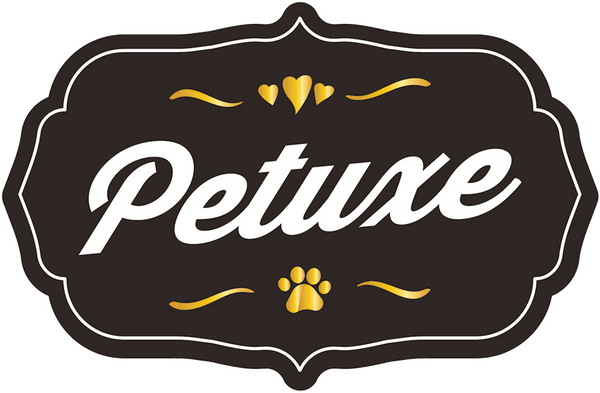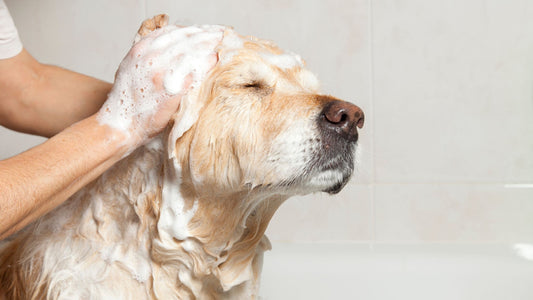How to care for a puppy

If you're about to become a parent of a baby dog, you sure want to know how to take care of who your new partner will be. Remember that the dog's first months will define some of its future life.
Having a puppy at home can be exciting but at the same time we must be prepared for this experience and have everything under control. Here we leave you a guide with the care that your little hairy will need in each of the stages of his first year.
Before you take the puppy home: up to 8 weeks
At 8 weeks after the dog is born, it is when the puppy can move to its new home. It's important that the first two months, even some recommend up to three months, the dog can learn from her mom and establish relationships with her hermanitos.
In the first 8 weeks you must ensure that:
- Make your first visit to the veterinarian for a general checkup.
- Get your first special vaccine for puppies.
- Socialize with other dogs and people.
- Know how to locate the bathroom
Ask the person who was in charge of the puppy in its first stage if the dog has fulfilled these tasks and so you will know if you will have to teach or do some things with the dog when it is already in your hands.
Before you bring them home, you'll need to prepare the puppy's home to make it feel at ease and happy. To do this:
- Buy toys that help you stay stimulated.
- Make space at home for the puppy to take place where to move and run. Even if you have a terrace or garden it is important that inside the home the dog can also feel comfort for its games. At this stage, the baby dog will only want to play all the time.
- Place the puppy's bed or resting place in a corner of the house where you can rest without being disturbed. He also provides a blanket to make him feel warm and warm as he was with his mother.
- Check that you have poisonous products or dog-friendly foods out of the puppy's reach.
Puppy welcome home: 8 to 12 weeks

Perhaps this is the most important moment for the new experience that your puppy and you will begin to live. During this stage the puppy's relationship and behavior will be defined with his new family in his new home.
The puppy for this safe stage will not be fully vaccinated. Although socializing with other dogs should follow, make sure that the dogs you know during this stage are fully vaccinated until the dog has received all of its vaccines.
This is a stage full of new experiences for your puppy, and it is ideal that in phase the dog can:
- Meet new people, objects and sounds. Try that during this time the puppy will live the greatest amount of experience as it is more open to knowing new things.
- Learn the rules of the house. During this period the dog must know certain rules of the house, both those that he must fulfill and those routine activities of the other members: which space of each, where he cannot be, what things are not to play, etc.
- Stay only for short periods of time to avoid bad behaviors related to separation. The dog must learn to stay alone.
- Establish routines of walks, trip to the bathroom, time of food, etc. It is important that the puppy starts to make sense of its own common sense.
- Recognize their good behaviors. Reward your puppy every time you learn new, this will make you feel happy and increase the relationship between you.
Training and new friends: 12 weeks ahead
At this time your puppy can already receive the second vaccines. Be sure to make your corresponding visit with the veterinarian to also include a plan for deworming, flea control and your neutering or sterilization.
Once your puppy is fully vaccinated it will be ready for complete socialization and can go outside without any danger to become ill or catch any disease.
Already the puppy must have learned some basic tasks, however it will still lack much to learn. Take advantage of this phase to learn certain requests that will be necessary for you to understand. Concentrate on:
- May your puppy learn to sit or stand in some position to wait for you.
- May your dog increase confidence in its ability to jump and run. Take it to places where you can release and release all the natural energy of your race.
- Learn what your furry partner likes. It's important that you also learn certain things about him: what he likes, his favorite food, his sleeping hours, when he doesn't want to play, etc.
- From the 3 months the puppy can take its first bath. Take the necessary care for the first bath of the puppy.
Sterilisation and more apprenticeships: From 6 months
The puppies are still in the learning phase, sure for this stage you still won't have reached to teach you everything you want or even the puppy has not been able to fully adapt to the small house rules or you have to correct certain details in your behavior.
It is normal that the dog has not yet learned 100% certain fundamental things in coexistence. You may be able to lose patience at some times but remember that it's a baby that is still experiencing some of its nature: biting, jumping and being playful is completely natural at this stage.
Talk to your veterinarian if you have any concerns about your puppy or if you notice that something is not right. It is important to pay attention to the puppy's behaviors and reactions to treat or correct on time.
It's also important to know that from this age you can start changing your dietary needs. Therefore, it includes new foods according to age and gradually passes to adult dog food until it reaches the year.
From the age of six months the dog is already physically prepared for spay or neuter surgery. Plan on time and arrange a few days to take care of your puppy during your recovery.
Remember that if you have a good relationship with your hairy and create positive experiences from an early age, you'll help your puppy become an adult friendly and self-assured dog.



